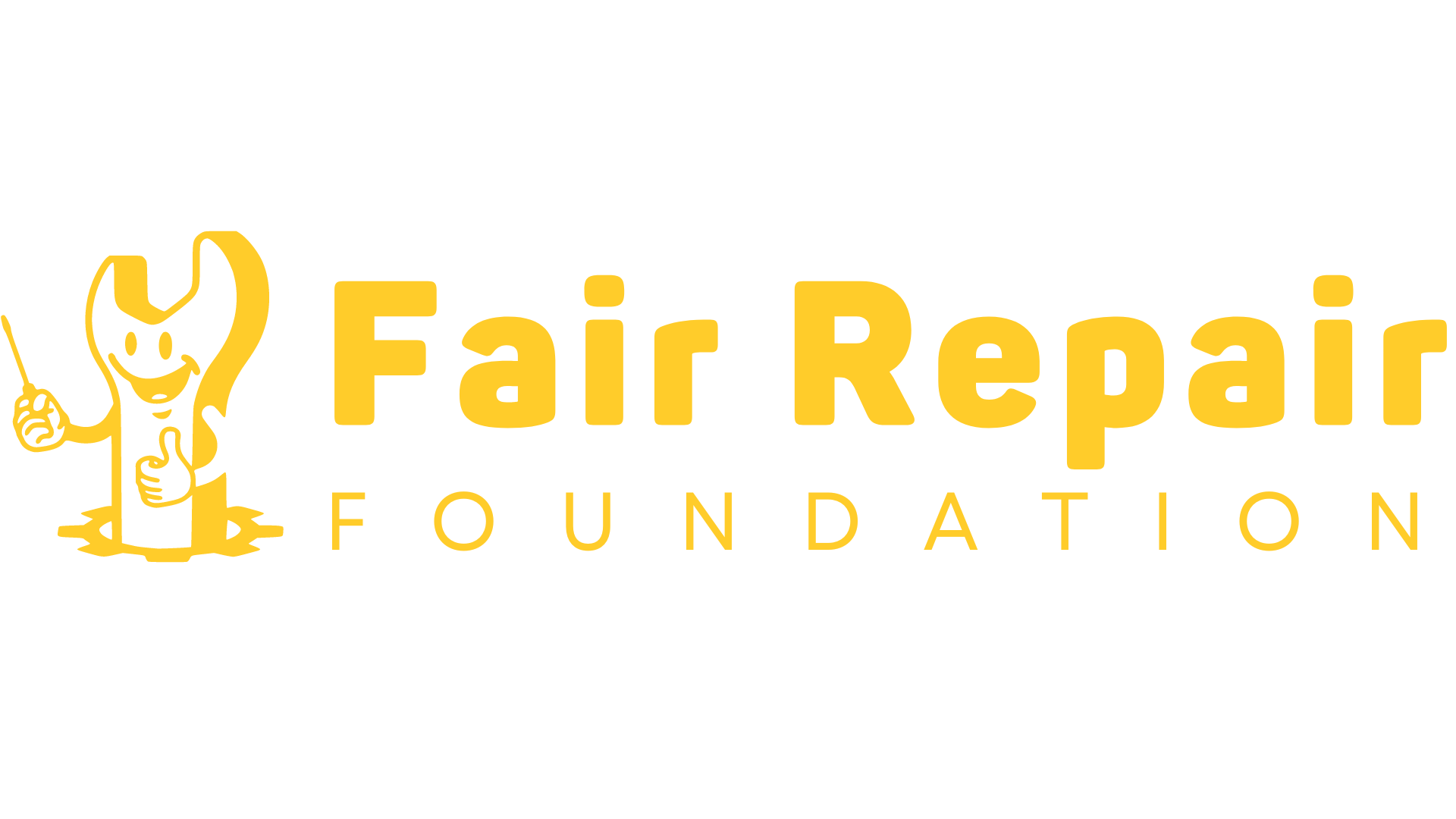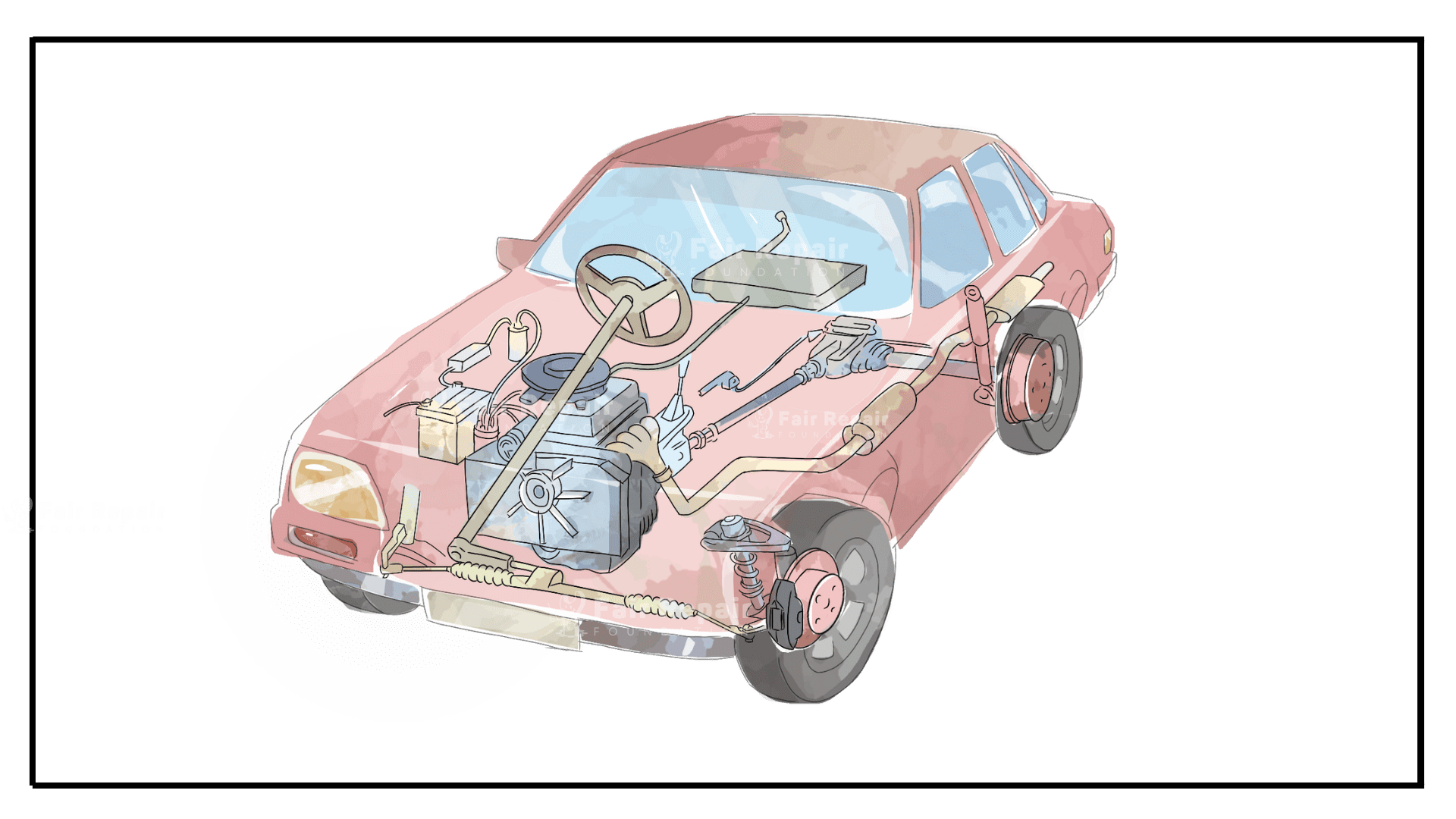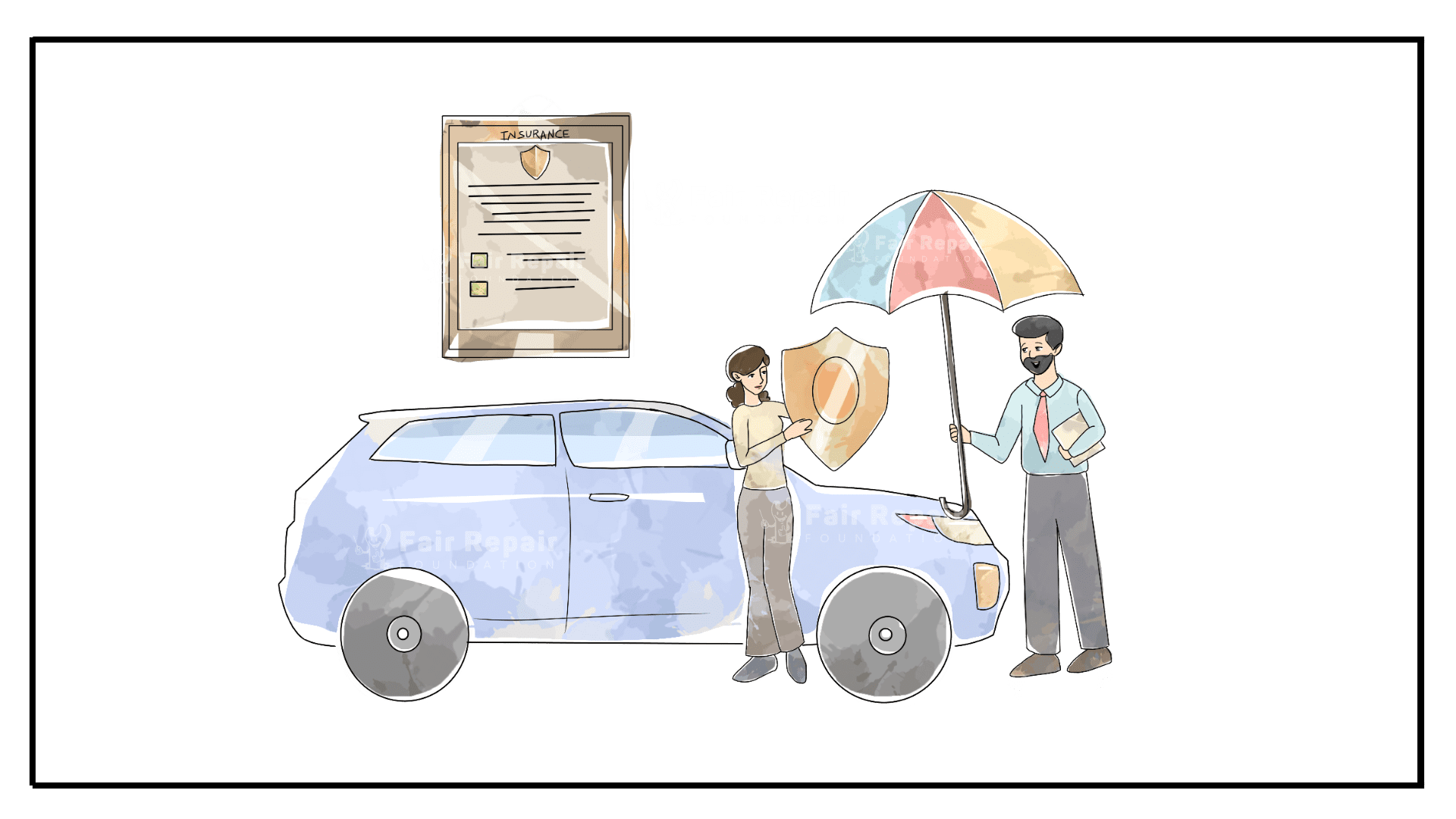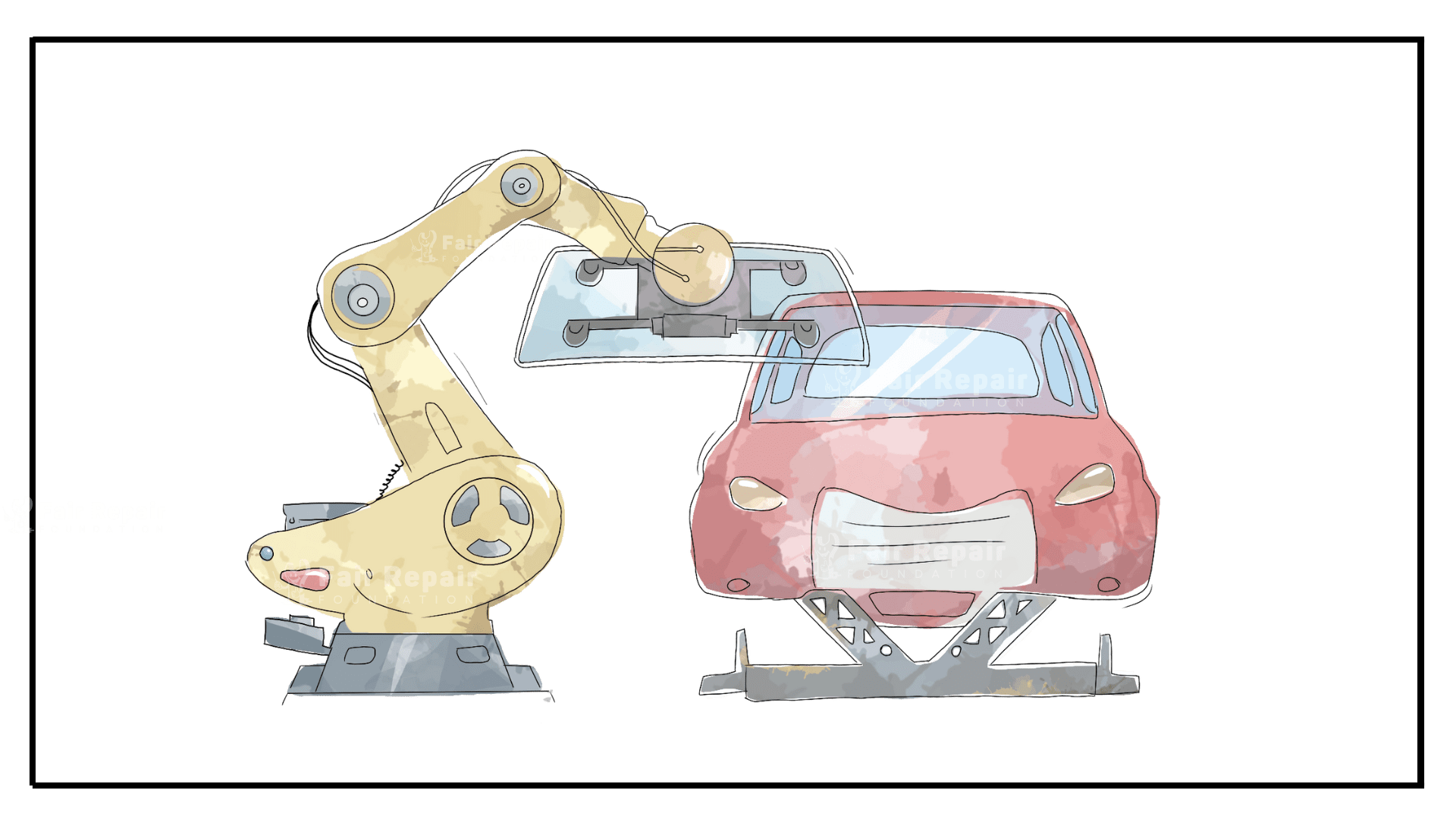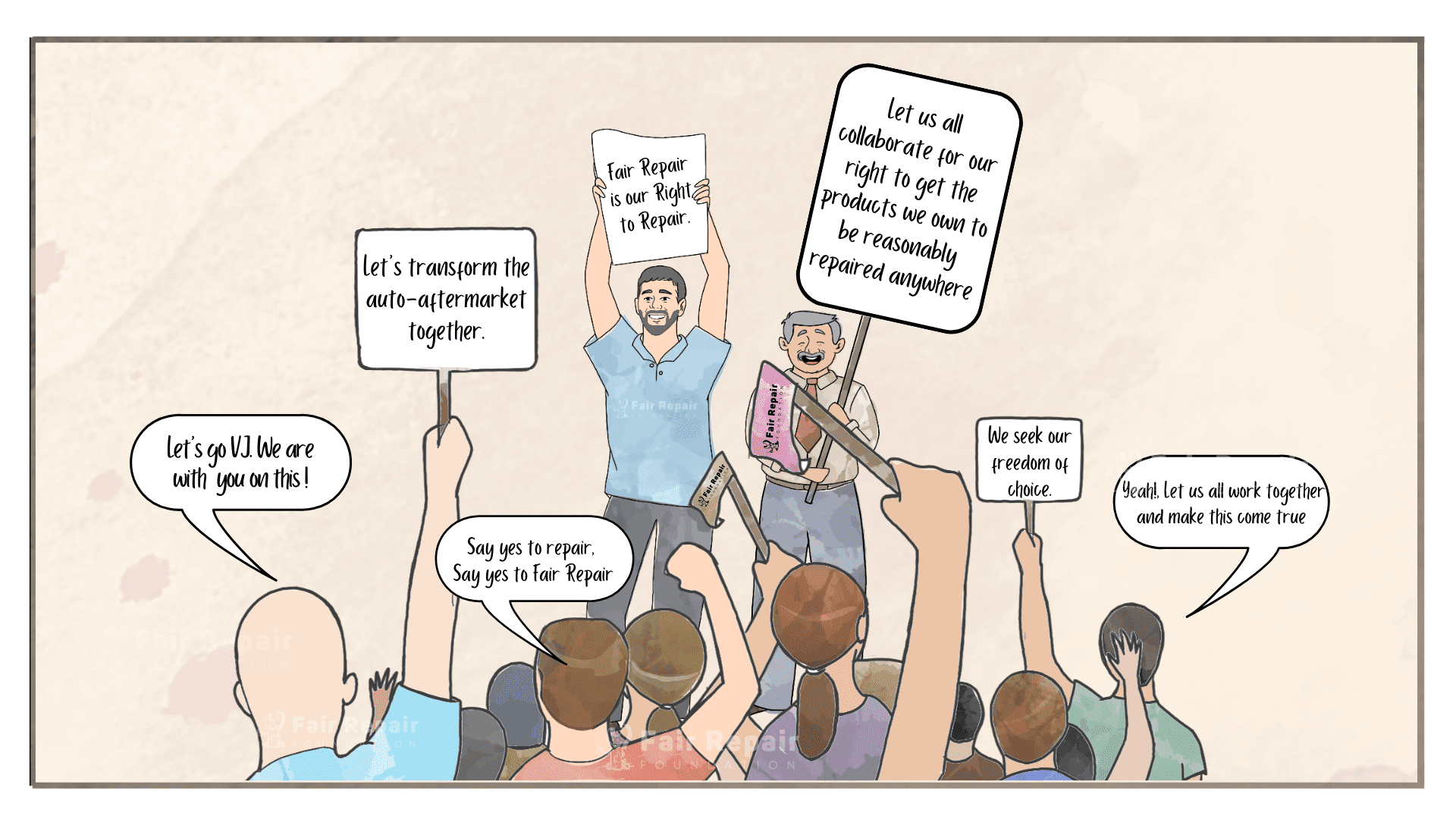
Right To Repair In India
Right to repair refers to the concept of allowing end users, business users, and consumers of technical, electronic or automotive devices, to freely repair these products in case of mechanical or technical failure. Four requirements are of particular importance:
- The device should be constructed and designed in a manner that allows repairs to be made easily;
- End users and independent repair providers should be able to access original spare parts and tools (software as well as physical tools) needed to repair the device at fair market conditions;
- Repairs should, by design, be possible and not hindered by software programming;
- The repairability of a device should be communicated by the manufacturer.
Source: Wikipedia
Efforts have been made since 2011 in India to promote the Right to Repair. However, such initiatives have yet to meet with success. Nevertheless, there is a need for us to be persistent until a level playing field is established.
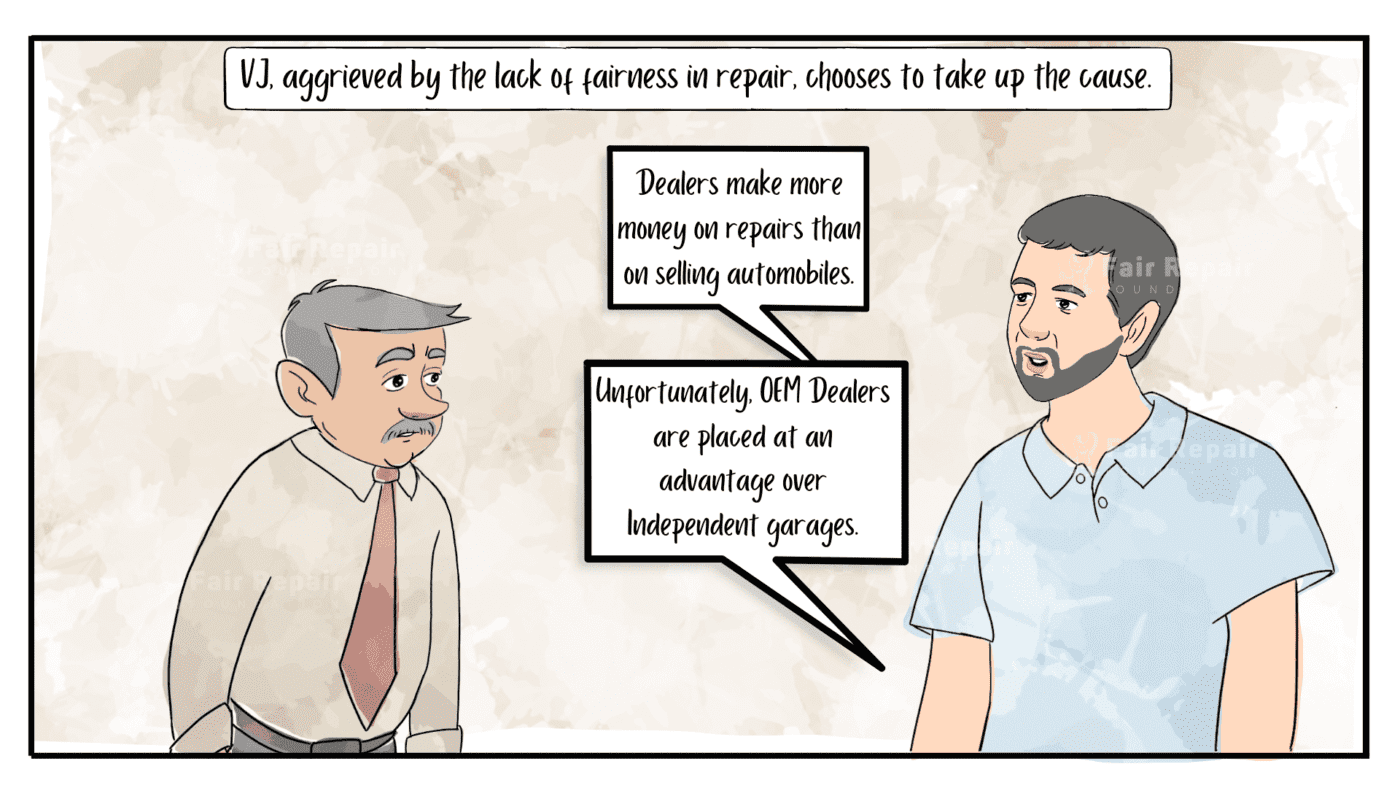
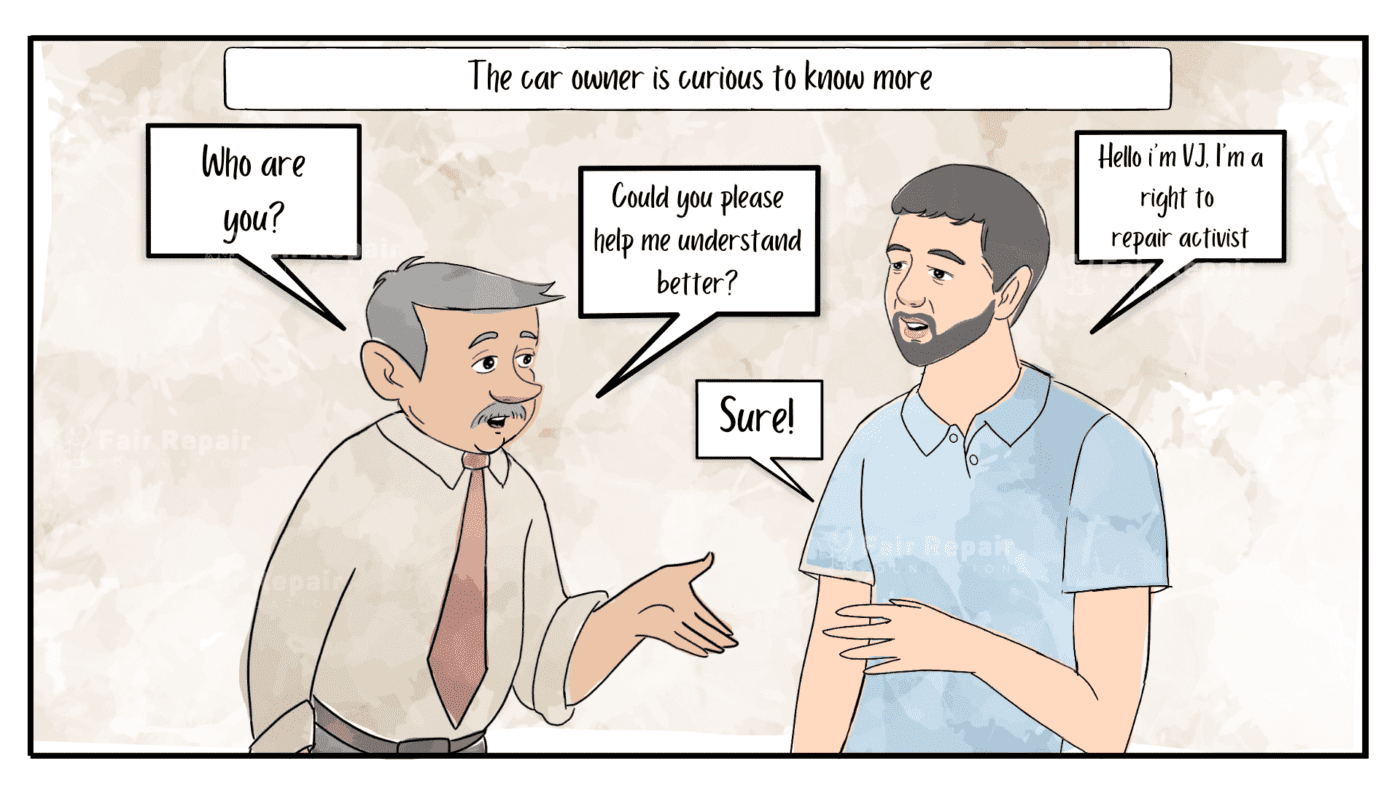
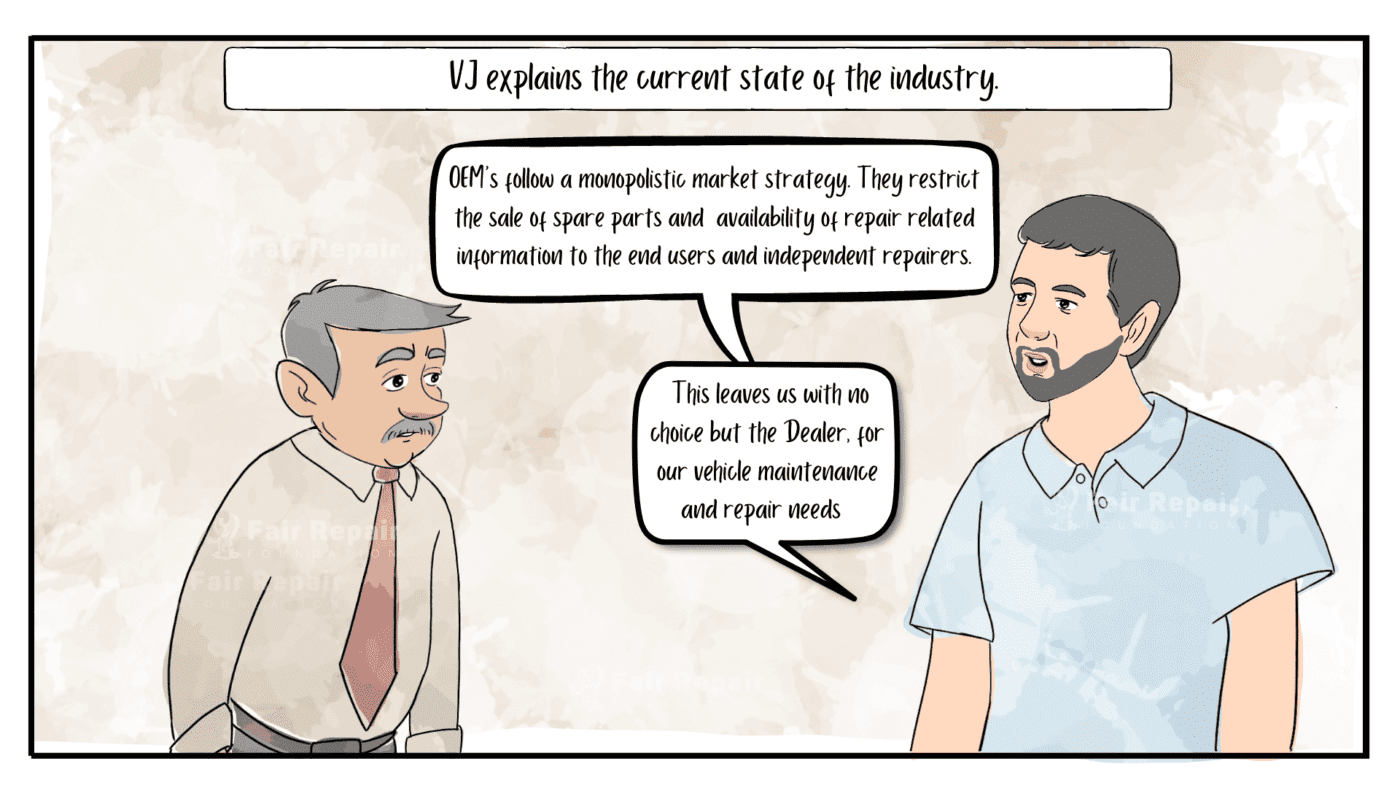
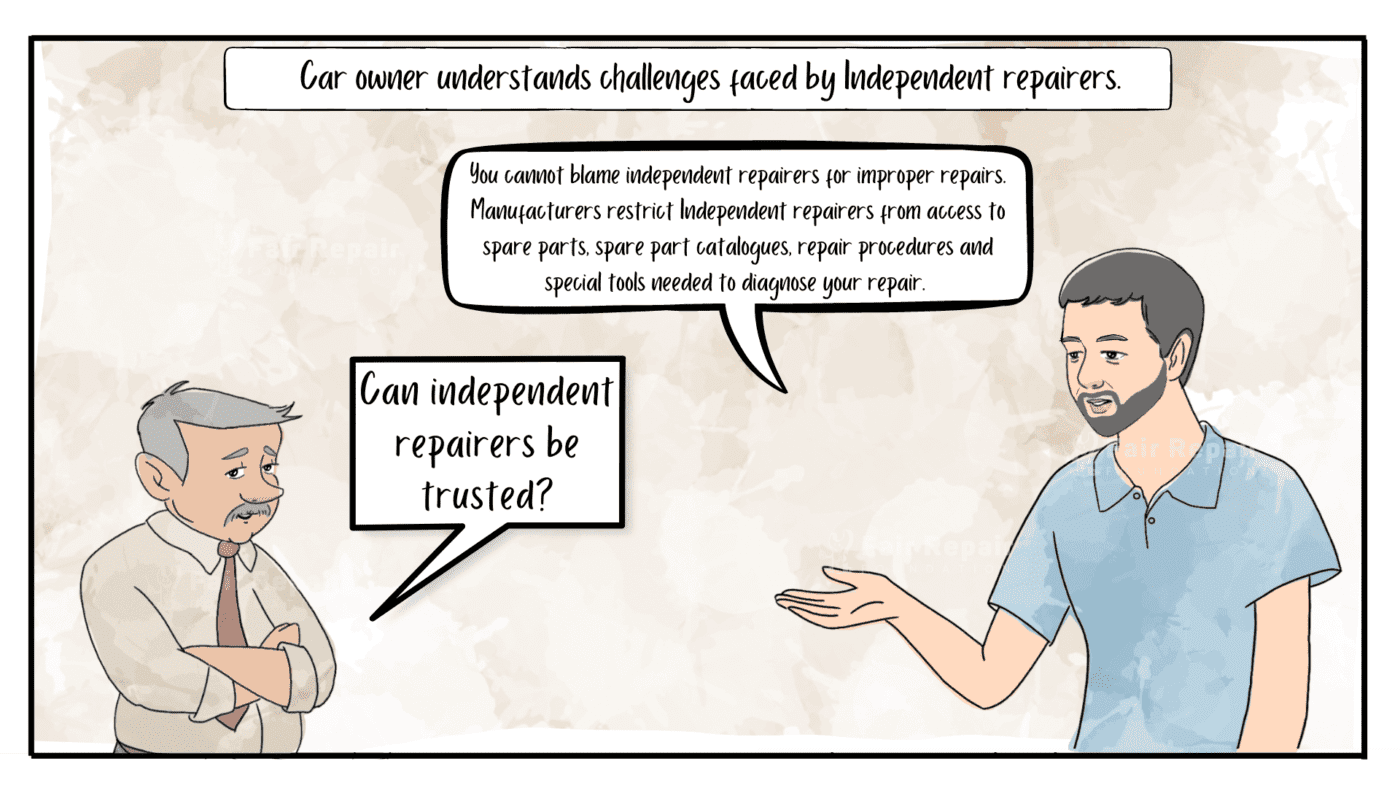
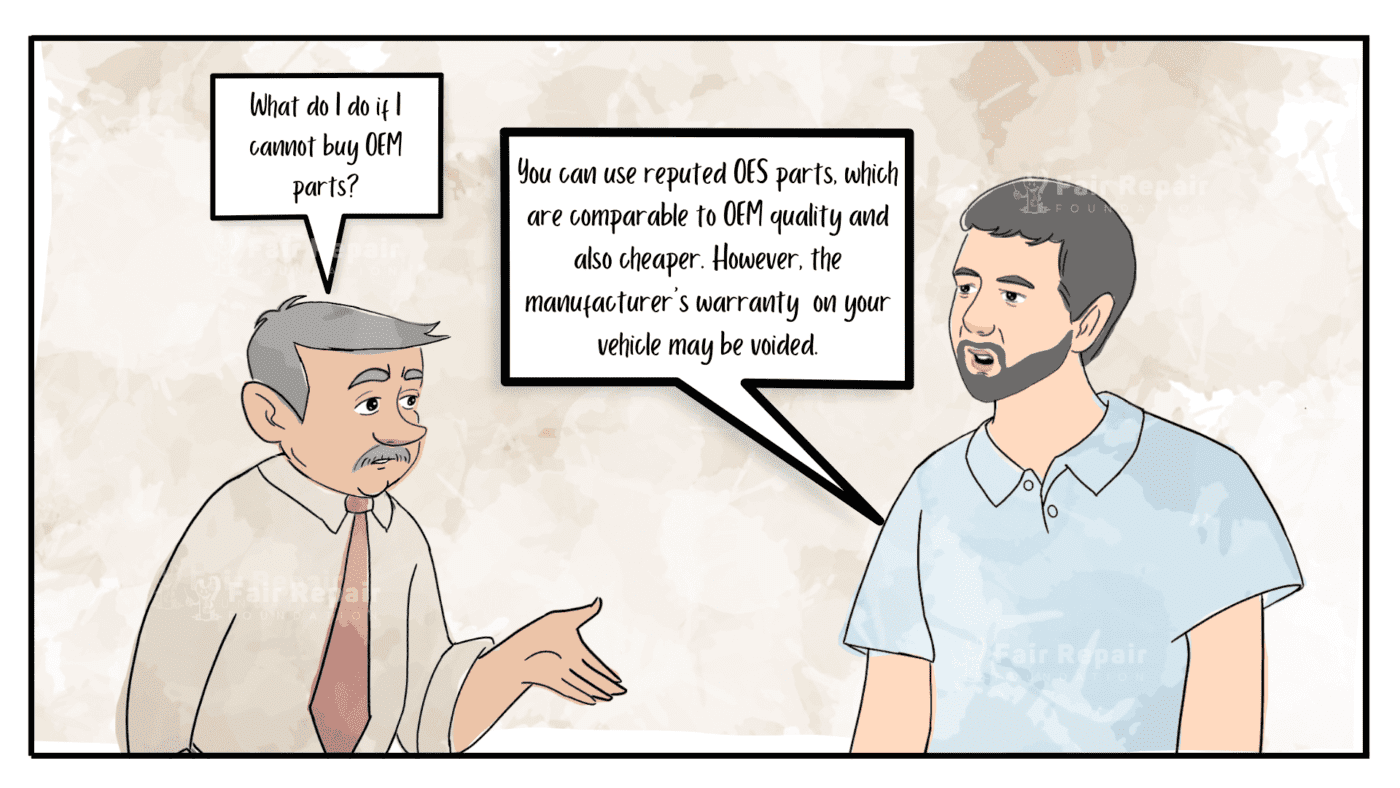
“The Competition Commission of India (CCI) (the authority regulating competition in India) actively investigates allegations of anticompetitive behaviour in the automotive sector. The investigations carried out by the CCI are either initiated suo motu by the CCI, based on press reports and information flowing from parallel cases or on information provided by third-party informants. The most notable competition-related issue in the automobile sector was Shamsher Kataria v Honda Siel Cars India Ltd & Ors, Case No. 03 of 2011 (CCI, 25 October 2014), in which the CCI investigated various automobile manufacturers for anticompetitive practices – it is understood they denied market access to branded spare parts and diagnostic tools and thereby hampered the ability of independent repairers to provide aftermarket repair and maintenance services to automobile owners.
Such practices have allowed automobile manufacturing companies to have monopolistic control over the spare parts and diagnostic tools market under their respective brands and charge arbitrary and steep prices for said products, in violation of the Competition Act 2002 (the Competition Act).
The CCI observed that owing to the technical specifications of the cars manufactured by each original equipment manufacturer (OEM), the spare parts of one brand cannot be used for the repair and maintenance of cars manufactured by another OEM. Since the spare parts of one OEM are not interchangeable or substitutable with those of other OEMs, each OEM is shielded from competition in the aftermarket from existing competitors in the primary market. Further, the agreements entered into by OEMs with their original equipment suppliers (OESs) and authorised dealers prohibited the sale of spare parts to independent repairers in the secondary market. The CCI was of the view that each OEM holds a position of strength, which enables it to affect its competitors in the secondary market or aftermarket, thereby limiting consumer choice and compelling consumers to behave in a manner beneficial to the OEMs, which allows them to enjoy a dominant position and strength in the aftermarket for spare parts. In addition to levying a heavy penalty, the CCI directed OEMs not to restrict independent repairers’ operation and to allow OESs to sell spare parts freely in the open market. However, OEMs have been permitted to charge royalties or fees where they hold intellectual property rights on parts, provided that the same is not in violation of the Competition Act.
Developments thereafter:
Some of the automotive manufacturers appealed the order of the CCI before the Competition Law Appellate Tribunal (COMPACT), established under the Competition Act. While hearing the appeal, the COMPACT concurred with the findings of the CCI and upheld the penalty levied. The Supreme Court of India stayed this order of the COMPACT in November 2018.
While some of the automotive manufacturers chose to prefer an appeal to the COMPACT as mentioned above, others decided to file a writ petition in the High Court of Delhi, among other things, challenging the constitutional validity of the decision-making process adopted by the CCI while adjudicating matters. This writ petition was successful, and the High Court of Delhi in April 2019 held that the decision-making process provided for in the Competition Act was unconstitutional. In its order, the court allowed the appellant automotive manufacturers to file an appeal against the order of the CCI to the National Company Law Appellate Tribunal (NCLAT) (the appellate authority) within six weeks of 10 April 2019 and directed the NCLAT to entertain the appeals on their merits, unhindered by any period of limitation. As per the publicly available information, no appeals have been filed yet with the NCLAT.”
Source: www.lexology.com
The full transcript of the CCI ruling is available here.
Jul 14, 2022: Department of Consumer Affairs sets up committee to develop comprehensive framework on the Right to Repair



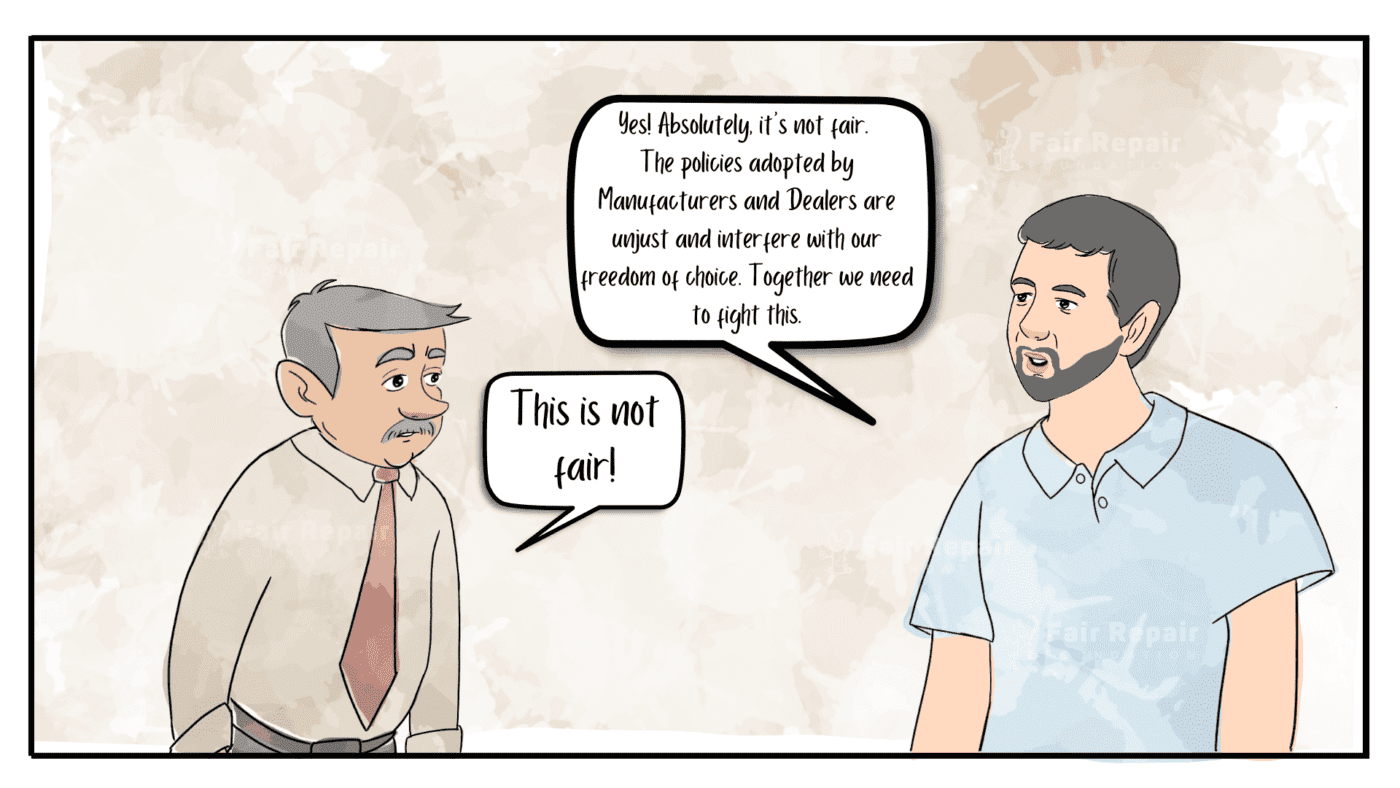

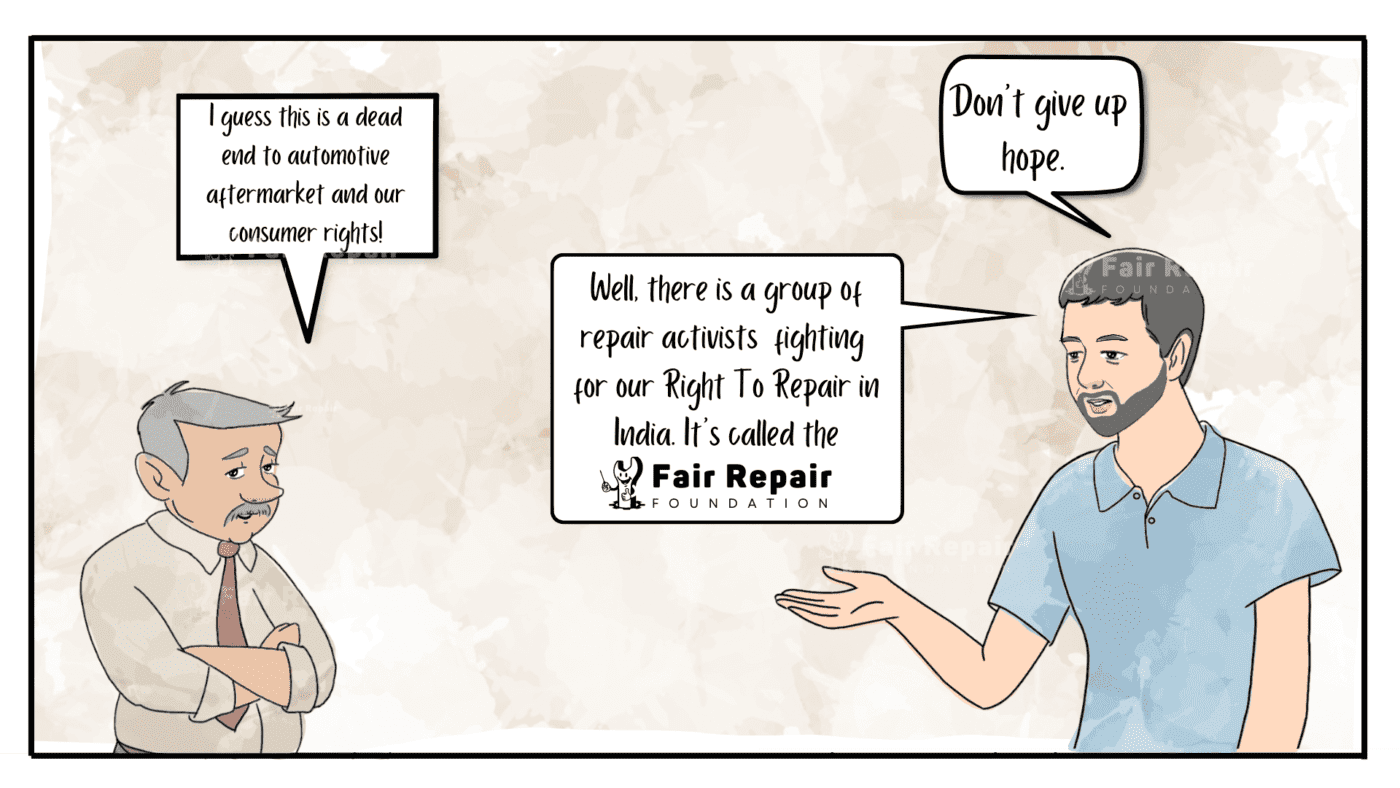

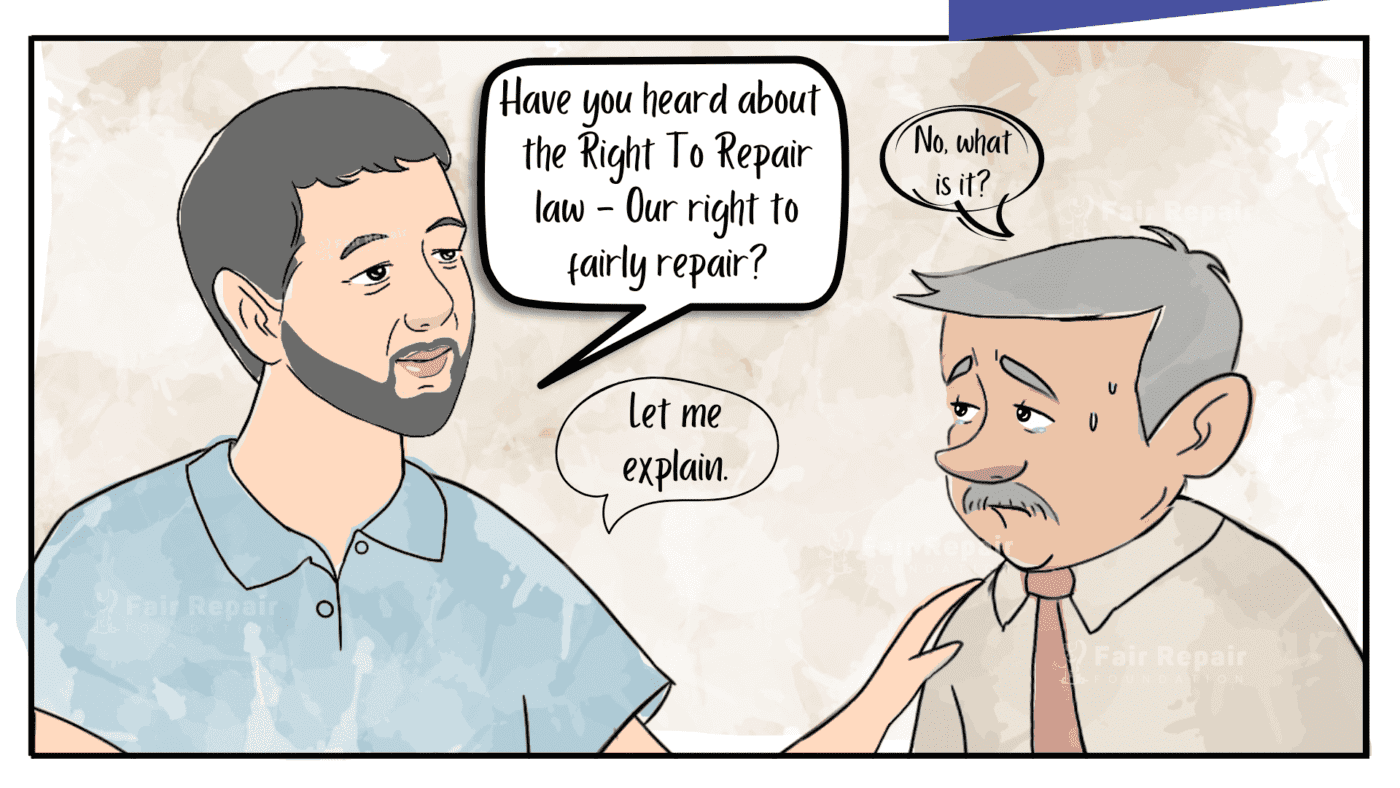

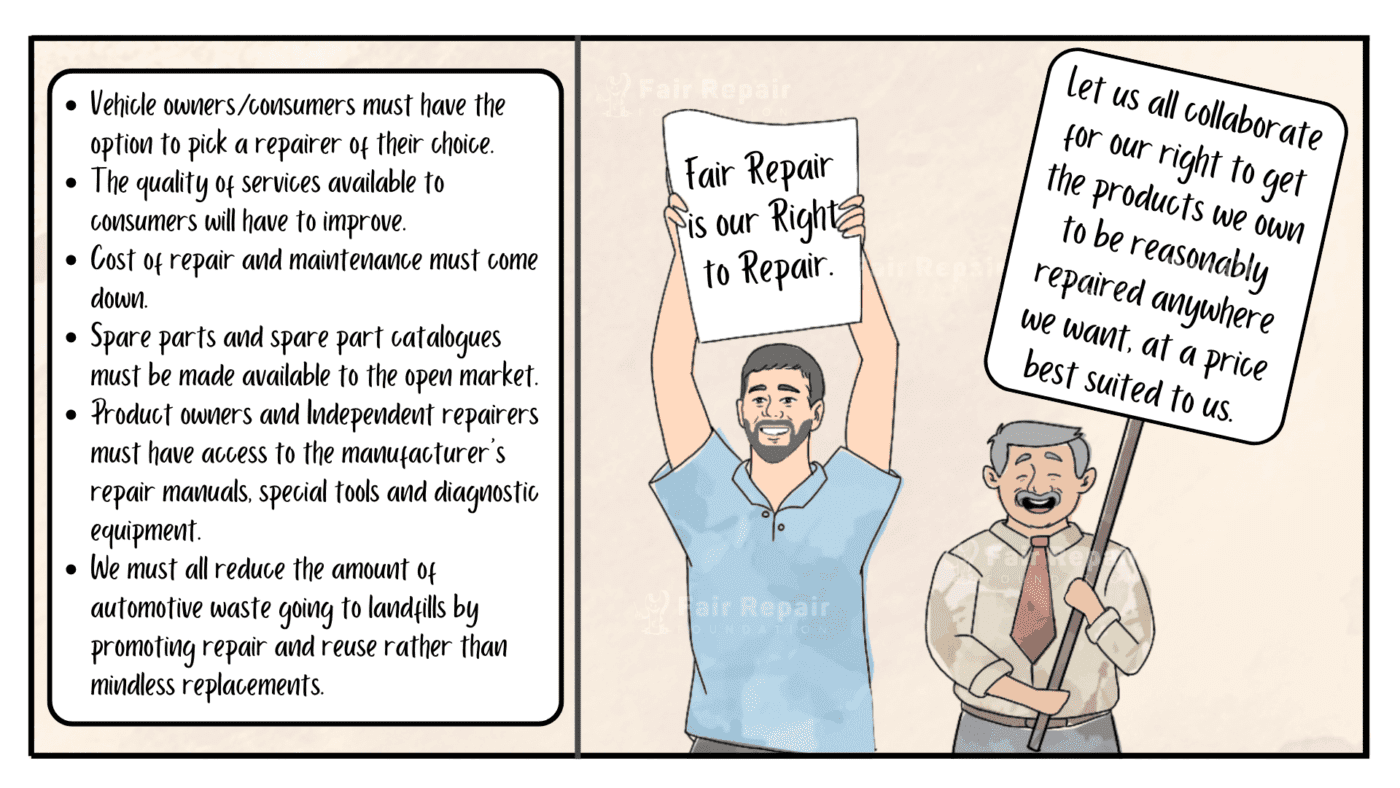

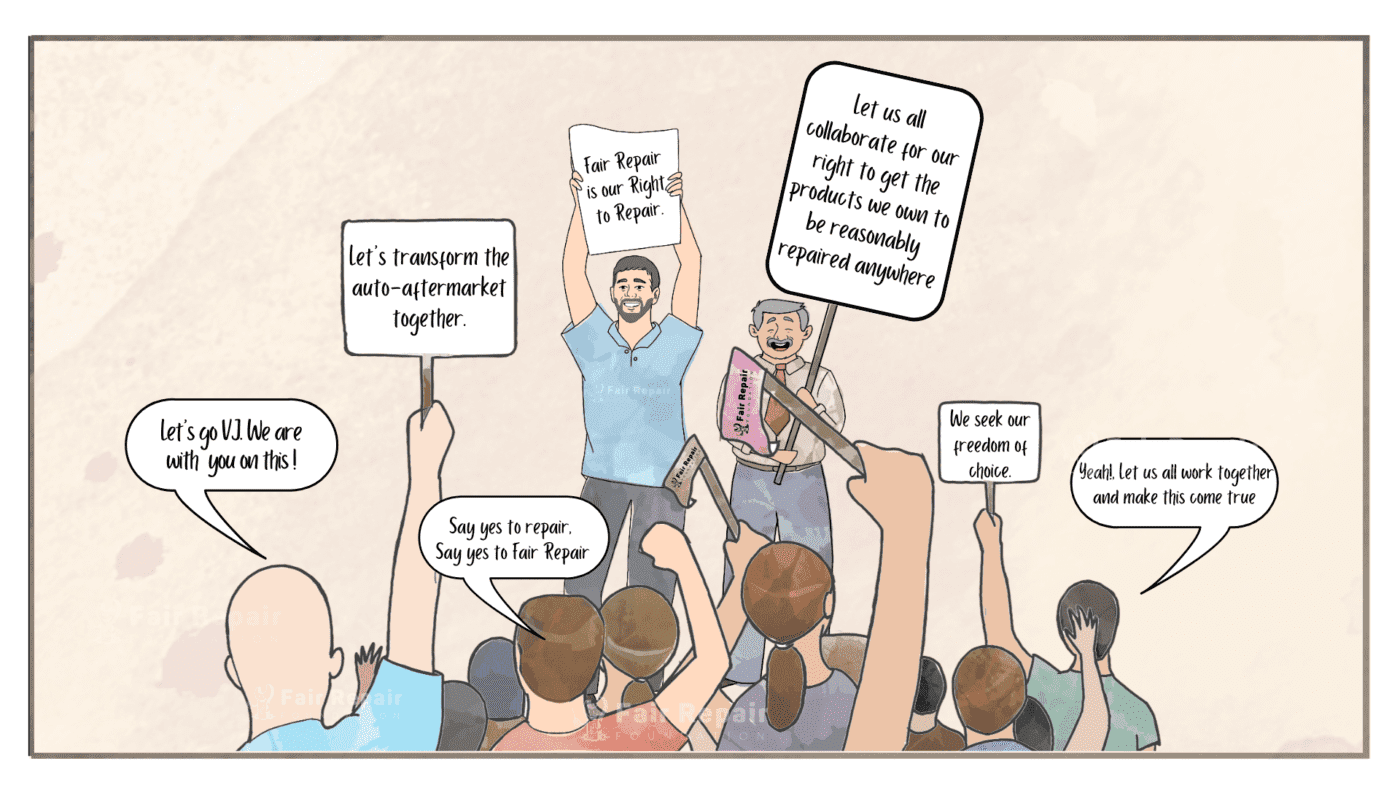

It’s exciting that there is new life to the Right to Repair movement. In Jul 2022, the Department of Consumer Affairs formed a committee to create a comprehensive framework for the Right to Repair for the following categories: Farming equipment, smartphones and tablets, consumer durables, automobiles, and other vehicles.
Equipment was one of the sectors mentioned in the committee’s first meeting as having the Right to Repair. Aatmanirbhar Bharat uses the Right to repair to create jobs by enabling third-party and self-repairing items. The framework must be in sync with the Hon. Prime Minister’s demand for a worldwide LiFE movement initiative. The Department of Consumer Affairs has made a big step toward establishing a unified framework for the Right to Repair to highlight the LiFE (Lifestyle for the Environment) movement through sustainable consumption.
The Department, in this regard, has set up a committee that Smt shall chair. Nidhi Khare, Additional Secretary, Department of Consumer Affairs, Government of India. The committee includes Shri Anupam Mishra, Joint Secretary DMCA, Justice Paramjeet Singh Dhaliwal, former Judge of Punjab and Haryana High Court, Former President of State Consumer Dispute Redressal Commission, Punjab, Prof. (Dr.) G.S. Bajpai, Vice-Chancellor, Rajiv Gandhi National University of Law, Patiala, Prof. Shri Ashok Patil, Chair of Consumer Law and Practice and representatives from various stakeholders like ICEA, SIAM, Consumer Activists and Consumer Organizations as members.
The committee held its first meeting on 13th July 2022, where it identified important sectors for the Right to repair. The sectors identified include Farming Equipment, Mobile Phones/ Tablets, Consumer Durables and Automobiles/Automobile Equipment.
Source: Ministry of Consumer Affairs, Govt. of India, dated Jul 14, 2022.

